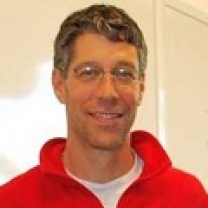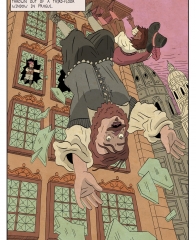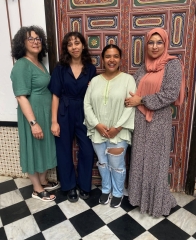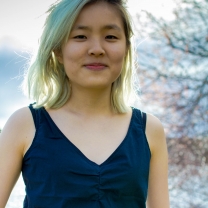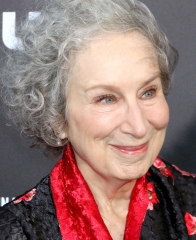 / The Origins of Surfing: Lima, Peru
Subscribe
/ The Origins of Surfing: Lima, Peru
Subscribe

For my Albright Fellowship this past summer I traveled around Peru learning about the vibrant surf culture here and the origins of surfing. I was intrigued by a theory that the Moche — an ancient culture that lived along the coast of present-day Peru — may have been the first surfers in the world. I interviewed experts, surfers, fishermen, locals, archaeologists, and scientists from Peru and all over the world. I also immersed myself in the surf scene across the Peruvian coast and even learned to ride waves while standing on a shortboard!
My initial plans and aims couldn’t possibly have looked more different from my original itinerary. When I proposed my project, I planned to spend 2 months in Callao, and I never even stepped foot in Callao! When I got to Peru I learned that Callao is extremely dangerous, and as a foreigner I should definitely not go there. That definitely threw off my plans, but I think I ended up on a far more true and beautiful path by pivoting to an itinerary where I got to travel all over Peru. I was so grateful for the freedom that the Albright/MacFarquhar Fellowship offered me to change my mind and chart my own journey. I was allowed to be my own boss, travel agent, project manager, and support staff. I never thought I would be good at being my own boss, but I found that I really enjoy the freedom and autonomy that this style of work offers.
My goals also changed significantly throughout the course of my project. I originally wanted to get a clear definition and get to the bottom of the mysteries of the origins of surfing. I quickly realized that it wasn’t going to work out that way and there was a lot of nuance I needed to account for. Luckily, my Albright Wintersession training gave me lots of preparation for appreciating the nuance of complex global issues.
I also learned a lot that surprised me about journalism. I realized that as long as you’re curious, basically anyone could do a journalistic project like mine. More people should take respectful interest in a community and go talk to people about it (their own or one that’s very different). Even if I don’t pursue journalism as a career, I hope and plan to complete projects such as this one throughout my life. I learned the best thing you can do for yourself is stay curious, and I always found talking to people about their cultures to be very rewarding. Although at times I was too shy to talk to strangers, it was both reassuring and surprising that every single person I spoke with was very eager to talk to me. Stretching the confines of my comfort zone by talking to as many strangers as I could built up my confidence immensely.
With the power of hindsight, there are a few (but not many!) things I would change about my experience. For one, I could have planned my itinerary in a much more organized way if I had done more careful research about the geography of Peru and which sights I had to see and which I’d be okay skipping. I also missed a festival I would have really loved to attend because I just didn’t know that it was happening at the time. If I could give any advice to potential MacFarquhar Fellows it would be that “plans are worthless, but planning is everything.” Make sure that you do a lot of pre-trip research so you can get a sense of what’s happening while you’re there and which things are non-negotiables to see, but don’t be so stuck in your plans that you have no room for spontaneity. The spontaneous plans I made often were some of the best parts of my whole time in Peru!
My MacFarquhar/Albright Fellowship was one of the very best experiences of my life. Now that I am finished with my fellowship, I’d love to assist potential or current MacFarquhar Fellows along their journey! If you are considering or completing this fellowship, please feel free to reach out to me for advice, friendship, or to know more about my experience.
